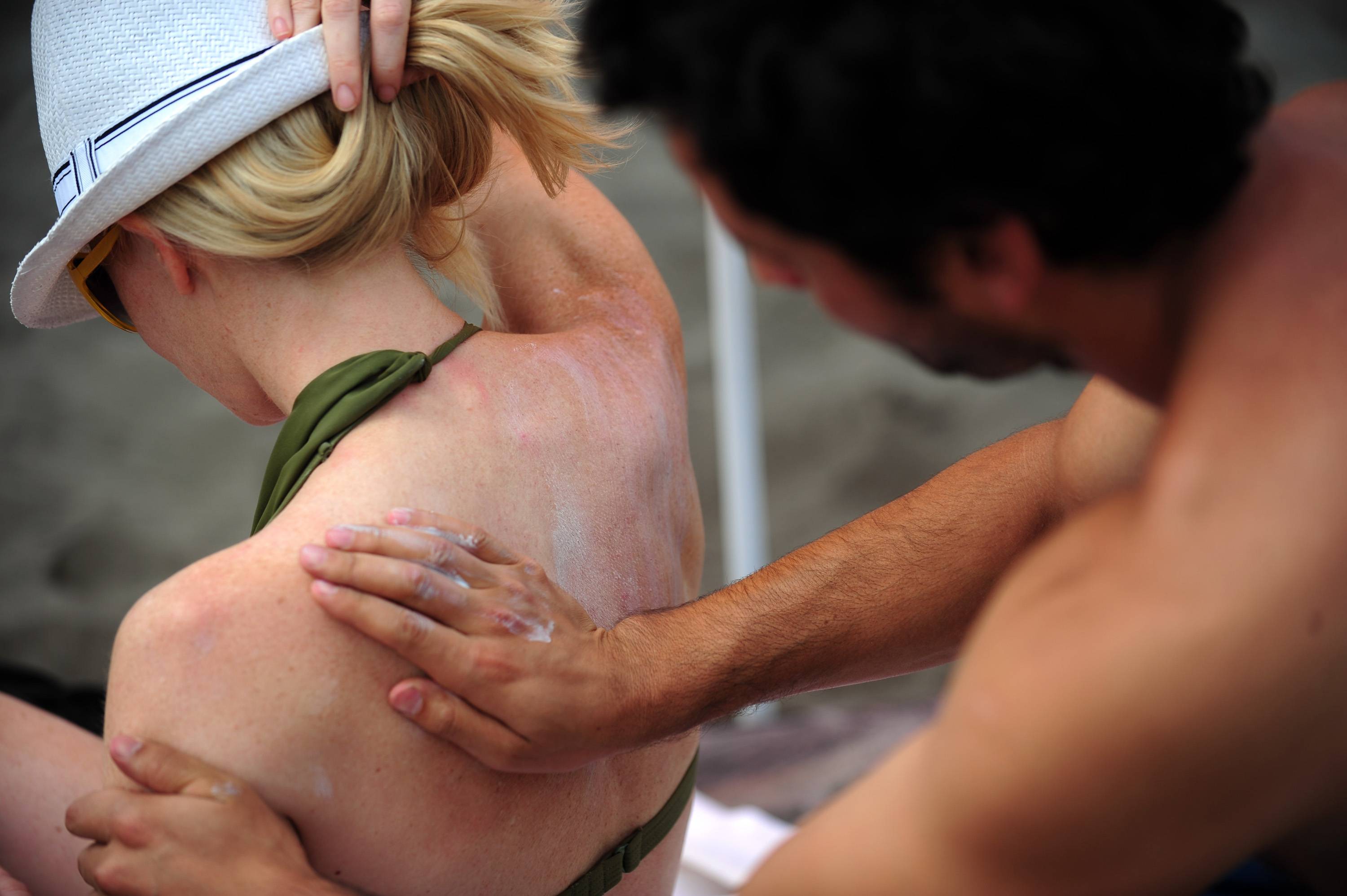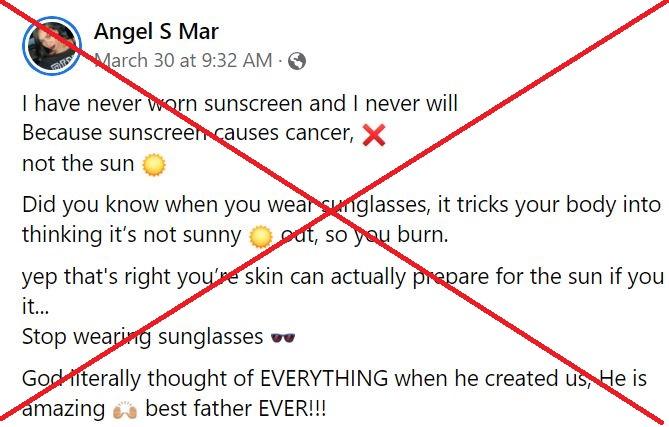
Sunscreen misleadingly targeted as a cause of cancer
"I have never worn sunscreen and I never will. Because sunscreen causes cancer, not the sun," says a March 30, 2022 Facebook post.

Similar claims appeared on Twitter here and here and on Instagram and Facebook.
Concerns over sunscreen became pronounced in 2021 after a recall of several products found to contain benzene, a known carcinogen, although not at levels "expected to cause adverse health consequences, " according to the US Food and Drug Administration (FDA).
The use of protective sunscreen is recommended by both the US Centers for Disease Control and Prevention and the FDA, which regulates the products, and which says: "The relationship between skin cancers and overexposure to the sun is well-documented."
Tim Rebbeck, the director of the Zhu Family Center for Global Cancer Prevention at Harvard University, told AFP that even though more research is needed, the data so far shows the benefits of using sunscreen far outweigh any risks.
While there is incomplete research on sunscreen ingredients, Rebbeck said long-term observational studies confirm sunscreen's ability to protect against skin cancer with no proven risk from using the product.
"We know very well that sun exposure causes skin cancer, that's not in debate," Rebbeck said. "UV (ultraviolet) radiation is directly responsible for skin cancer."
An Australian study published in 2018 in the Journal of the American Medical Association concluded that "regular sunscreen use is significantly associated with reduced risk of cutaneous melanoma among young adults."
A separate study by Australian researchers published in 2020 in BMJ Open, affiliated with the British Medical Journal, reached a similar conclusion on melanoma, the deadliest form of skin cancer.
"Systematic sunscreen use at a population level will prevent substantial numbers of new skin tumors, melanoma deaths and save healthcare costs," the researchers wrote. "Primary prevention through daily use of sunscreen is a priority for investment in the control of melanoma."
Rebbeck said the benefits of sunscreen have been widely proven and that consumers should not be deterred by reports of small elements of benzene, an ingredient which is also found in detergent, cigarette smoke and other products.
In 2021, the independent research lab Valisure released the results of its study showing benzene found in some brands of sunscreen. The lab had also found benzene in shampoos, hand sanitizers, deodorants and other products.
The Personal Care Products Council, an industry association, said the findings created unnecessary alarm.
"Benzene is a chemical that is ubiquitous in the environment and not an intentionally added ingredient in personal care products," it said in a statement.
"People worldwide are exposed daily to benzene from indoor and outdoor sources, including air, drinking water, and food and beverages. The US Food and Drug Administration (FDA) and product manufacturers are aware that it may be present in food and drug products at trace levels, and those very low levels do not pose a safety concern for consumers."
Copyright © AFP 2017-2026. Any commercial use of this content requires a subscription. Click here to find out more.
Is there content that you would like AFP to fact-check? Get in touch.
Contact us
